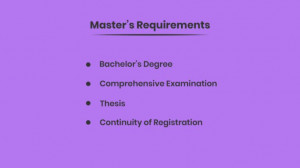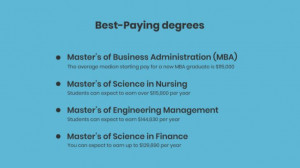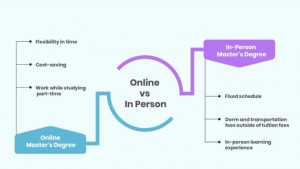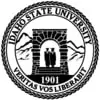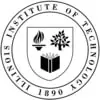Best Online Masters Degree Programs
Get detailed information about best online Masters degree programs in and their tuition, accreditation, career prospects, scholarships, admission details and much more
Online Masters Degree
A master's degree is the next level of education past a bachelor's degree. You usually pursue a master's degree related to the subject you earned your bachelor's in.
A master's degree in your hand proves that you have in-depth knowledge about a specific subject. This can increase the chances of you getting a job in a higher post right from the beginning of your career.
You can study for a master's degree using either the traditional on-campus method or by non-traditional methods such as a distance, part-time, or online education program.
A master's degree can be acquired in almost any subject, such as physics, marketing, finance, engineering, and psychology.
Some master's degrees don't require that you earn a bachelor's degree in the subject first. However, you'll need to have a bachelor's degree before starting the course of study. For example, to earn a Master in Business Administration (MBA), you can have a bachelor's degree in any subject.
Many master's degree programs let you specialize even further in a subject.
For example, a master's degree in physics has general concentrations like Computational Physics, General Physics, and Material Science. It provides research opportunities also in various areas of science.
A master's degree in marketing has specialized concentrations like International Business, Digital Marketing, Marketing Analytics, Marketing Management, etc.
A master's degree in engineering has specialized concentrations in Mechanical, Information Science, Electronics, Civil, etc.
Benefits of earning a master's degree
There are many reasons to consider pursuing a master's degree.
A master's degree program will give you the opportunity to continue your studies or return to school for additional learning. You'll gain even more knowledge about a subject, and you can make use of that knowledge in the future.
A master's degree will also make you more competitive in the job market.
According to the Bureau of Labor Statistics, the number of jobs that require a master's degree increased by 18% between 2012 and 2022. Even if you don't want a job that requires a degree beyond a bachelor's degree, more education won't hurt your chances.
Jobs that require higher levels of education also tend to pay more, so entering an online graduate program and earning a graduate degree can increase your income.
Earning a master's degree will also give you a valuable network.
Many programs, especially MBA programs, focus on helping you meet people and teaching you how to form connections. You can leverage your network down the road to find more job opportunities or to help your business grow.
Master's degree requirements
While the precise requirements to earn a master's degree will depend on the program you choose, there are a few relatively consistent requirements across schools.
The primary requirement is that you must already have an undergraduate degree. You usually can't skip earning a bachelor's degree and go straight for a master's.
However, some schools offer combined programs that let you earn a bachelor's degree and a master's degree at the same time or work toward a master's while finishing your bachelor's degree.
Most schools will also make you take a standardized test like the GRE. You'll have to submit your GRE score with your application.
Once you get into a graduate program, you have to complete a certain number of credit hours to earn your degree.
For example, Northeastern University requires that students complete 30 credit hours of work and a thesis while maintaining a 3.0 GPA to earn a degree.
Harvard Extension School, Harvard University's online master's degree program, requires that students complete twelve classes (48 credit hours), including a thesis, to earn a degree.
Typically, a master's program only requires that you take courses related to your field of study. You usually don't have to take core courses as you did to earn an undergraduate degree.
Best-paying master's degrees
One of the top reasons to enter a master's program is to improve your job prospects and increase your income.
Selecting an online degree program is particularly common for students who want to increase their income as they can keep their current job while pursuing a degree. Once an online student completes their online courses, they can start working toward a promotion or look for a new job.
Prospective students that want to increase their income through online learning might want to consider these degree programs:
Master of Business Administration (MBA)
A Master of Business Administration (MBA) program is one of the most popular and best-paying master's programs. An MBA program readies you for a management role in many different businesses.
Depending on your interests and previous education, you can use an MBA to find a role managing different aspects of a company, such as a computer science, IT, marketing, or sales team.
It may seem like you will miss out on networking and other things if you choose an online MBA program, but many schools find ways to offer a similar experience both online and in person.
The average median starting pay for a new MBA graduate is $115,000.
Master of Science in Nursing
If you're working in healthcare but don't want the time and expense of becoming a doctor, earning a Master of Science in Nursing is another way to advance your career.
Students often work toward becoming nurse anesthetists, who can assist with anesthesiology, or nurse practitioners, who can take on some of the duties typically reserved for doctors.
Students can expect to earn over $115,800 per year, depending on the specialization they choose.
Master of Engineering Management
A Master of Engineering Management prepares you for more advanced and difficult engineering projects.
For example, students may graduate into a role as an architectural and engineering manager, running a team that's responsible for designing and erecting buildings.
Students can expect to earn $144,830 per year after graduating with this degree.
Master of Science in Finance
If you're working in the world of finance, higher education can help you land higher-paying roles and give you more credibility.
Depending on your interests, this degree can prepare you to work as a manager at an investment firm or to work directly with clients as a financial advisor. You may choose to earn additional certifications to help you draw more clients.
You can also find an accounting program that will prepare you for higher-level roles as an accountant.
Depending on the role you choose, you can expect to earn up to $129,890 per year after earning this degree.
Online vs. in-person master's degrees
An online program has many advantages over in-person master's degree programs, but you might worry about missing out on some essential aspects of in-person learning.
While it's true that it can be hard to replicate the classroom experience online, the flexibility and cost-savings offered by an online master's program are significant.
Harvard, one of the top universities in the world, is a great example of this.
The tuition for a single year of study at the Harvard Graduate School of Education is $51,904. This is before other costs such as room and board and transportation.
At the Harvard Extension School, online learners must complete twelve courses to earn their degree. Each course costs $2,900 for a total cost of $34,800. The entire degree from Harvard's online program costs less than a single year of study for the in-person program.
Students in an online program also can avoid costs such as room and board in a dormitory.
Often, they can keep their jobs and study part-time, which means they won't lose income, making the effective cost of an online degree program even lower.
Online programs have other advantages to consider.
Often, an online graduate student will have the flexibility to watch lectures when they have the time, rather than having to stick to a set schedule.
Because many people pursue a master's degree after they've already started a career, this additional flexibility can be a major benefit of online programs.
Conclusion
A master's degree is a great way to make yourself more marketable to employers and increase your income.
If you're thinking about working toward a master's degree, consider an online degree program. They're often cheaper and more flexible than in-person classes while providing the same benefits.
If you're considering an online degree program and want to know how to pay for it, check out The College Monk's list of the best student loans.
Masters Degrees in Agriculture
Master of Science
Kansas State University
Manhattan, Kansas
Agriculture Accreditation: Request Info
Avg Credits: 42
Avg Tuition: $ 18,186
Avg Federal grant awarded: $4,233
Avg Institutional grant awarded: $5,192
Graduation Rate: 63%
Also See: Programs & Tuitions
Total Programs in Agriculture (1)
Request InfoTexas A&M University
College Station, Texas
Agriculture Accreditation: Request Info
Avg Credits: 34
Avg Tuition: $ 29,975
Avg Federal grant awarded: $4,730
Avg Institutional grant awarded: $5,038
Graduation Rate: 80%
Also See: Programs & Tuitions
Total Programs in Agriculture (2)
Request InfoAuburn University (AU)
Auburn, Alabama
Agriculture Accreditation: Request Info
Avg Credits: 32
Avg Tuition: $ 15,670
Avg Federal grant awarded: $4,668
Avg Institutional grant awarded: $8,996
Graduation Rate: 75%
Also See: Programs & Tuitions
Total Programs in Agriculture (3)
Request InfoAgriculture Accreditation: Request Info
Avg Credits: 33
Avg Tuition: $ 18,816
Avg Federal grant awarded: $4,291
Avg Institutional grant awarded: $6,384
Graduation Rate: 74%
Also See: Programs & Tuitions
Total Programs in Agriculture (5)
Request InfoUniversity of Delaware (UD)
Newark, Delaware
Agriculture Accreditation: Request Info
Profit Type: Public
Avg Tuition: Request Info
Avg Federal grant awarded: $4,428
Avg Institutional grant awarded: $8,604
Graduation Rate: 81%
Also See: Programs & Tuitions
Total Programs in Agriculture (1)
Request InfoTexas A&M University
College Station, Texas
Agriculture Accreditation: Request Info
Avg Credits: 36
Avg Tuition: $ 31,608
Avg Federal grant awarded: $4,730
Avg Institutional grant awarded: $5,038
Graduation Rate: 80%
Also See: Programs & Tuitions
Total Programs in Agriculture (2)
Request InfoAuburn University (AU)
Auburn, Alabama
Agriculture Accreditation: Request Info
Avg Credits: 32
Avg Tuition: $ 15,233
Avg Federal grant awarded: $4,668
Avg Institutional grant awarded: $8,996
Graduation Rate: 75%
Also See: Programs & Tuitions
Total Programs in Agriculture (4)
Request InfoAgriculture Accreditation: Request Info
Avg Credits: 36
Avg Tuition: $ 40,752
Avg Federal grant awarded: $4,475
Avg Institutional grant awarded: $7,464
Graduation Rate: 77%
Also See: Programs & Tuitions
Total Programs in Agriculture (1)
Request InfoMaster of Arts
New Mexico State University (NMSU)
Las Cruces, New Mexico
Agriculture Accreditation: NCATE
Avg Credits: 31
Avg Tuition: $ 27,807
Avg Federal grant awarded: $4,551
Avg Institutional grant awarded: $6,217
Graduation Rate: 45%
Also See: Programs & Tuitions
Total Programs in Agriculture (2)
Request InfoBachelor of Applied Science
Parkland College
Champaign, Illinois
Agriculture Accreditation: Request Info
Profit Type: Public
Avg Tuition: Request Info
Avg Federal grant awarded: $4,380
Avg Institutional grant awarded: $3,116
Graduation Rate: 22%
Also See: Programs & Tuitions
Total Programs in Agriculture (1)
Request InfoMasters Degrees in Philosophy
Master of Arts
Gonzaga University
Spokane, Washington
Philosophy Accreditation: Request Info
Avg Credits: 60
Avg Tuition: $ 27,470
Avg Federal grant awarded: $5,277
Avg Institutional grant awarded: $18,274
Graduation Rate: 84%
Also See: Programs & Tuitions
Total Programs in Philosophy (1)
Request InfoMurray State University
Murray, Kentucky
Philosophy Accreditation: Request Info
Avg Credits: 30
Avg Tuition: $ 42,570
Avg Federal grant awarded: $4,896
Avg Institutional grant awarded: $8,747
Graduation Rate: 49%
Also See: Programs & Tuitions
Total Programs in Philosophy (1)
Request InfoCalifornia Institute of Integral Studies (CIIS)
San Francisco, California
Philosophy Accreditation: Request Info
Avg Credits: 36
Avg Tuition: Request Info
Also See: Programs & Tuitions
Total Programs in Philosophy (3)
Request InfoUniversity of Philosophical Research (UPR)
Los Angeles, California
Philosophy Accreditation: Request Info
Avg Credits: 51
Avg Tuition: $ 20,400
Also See: Programs & Tuitions
Total Programs in Philosophy (1)
Request InfoMasters Degrees in Chemistry
Master of Science
Emporia State University
Emporia, Kansas
Chemistry Accreditation: Request Info
Avg Credits: 70
Avg Tuition: Request Info
Avg Federal grant awarded: $4,469
Avg Institutional grant awarded: $2,646
Graduation Rate: 44%
Also See: Programs & Tuitions
Total Programs in Chemistry (1)
Request InfoChemistry Accreditation: Request Info
Avg Credits: 33
Avg Tuition: $ 37,880
Avg Federal grant awarded: $4,475
Avg Institutional grant awarded: $7,464
Graduation Rate: 77%
Also See: Programs & Tuitions
Total Programs in Chemistry (1)
Request InfoIdaho State University
Pocatello, Idaho
Chemistry Accreditation: Request Info
Avg Credits: 41
Avg Tuition: $ 19,035
Avg Federal grant awarded: $4,463
Avg Institutional grant awarded: $4,329
Graduation Rate: 29%
Also See: Programs & Tuitions
Total Programs in Chemistry (2)
Request InfoSouth Dakota State University (SDSU)
Brookings, South Dakota
Chemistry Accreditation: Request Info
Avg Credits: 32
Avg Tuition: $ 14,240
Avg Federal grant awarded: $4,372
Avg Institutional grant awarded: $2,382
Graduation Rate: 53%
Also See: Programs & Tuitions
Total Programs in Chemistry (1)
Request InfoIdaho State University
Pocatello, Idaho
Chemistry Accreditation: Request Info
Avg Credits: 150
Avg Tuition: $ 70,500
Avg Federal grant awarded: $4,463
Avg Institutional grant awarded: $4,329
Graduation Rate: 29%
Also See: Programs & Tuitions
Total Programs in Chemistry (1)
Request InfoIllinois Institute of Technology
Chicago, Illinois
Chemistry Accreditation: Request Info
Avg Credits: 32
Avg Tuition: $ 47,040
Avg Federal grant awarded: $5,978
Avg Institutional grant awarded: $29,046
Graduation Rate: 71%
Also See: Programs & Tuitions
Total Programs in Chemistry (2)
Request InfoMaster of Education
University at Buffalo (UB)
Buffalo, New York
Chemistry Accreditation: Request Info
Profit Type: Public
Avg Tuition: $ 7,237
Avg Federal grant awarded: $5,121
Avg Institutional grant awarded: $3,241
Graduation Rate: 74%
Also See: Programs & Tuitions
Total Programs in Chemistry (1)
Request InfoMaster of Professional Studies
Chemistry Accreditation: Request Info
Avg Credits: 30
Avg Tuition: $ 8,422
Avg Federal grant awarded: $4,289
Avg Institutional grant awarded: $2,505
Graduation Rate: 37%
Also See: Programs & Tuitions
Total Programs in Chemistry (1)
Request InfoMasters Degrees in Aviation
Master of Science
Lewis University
Romeoville, Illinois
Aviation Accreditation: Request Info
Avg Credits: 36
Avg Tuition: $ 27,900
Avg Federal grant awarded: $4,633
Avg Institutional grant awarded: $13,761
Graduation Rate: 62%
Also See: Programs & Tuitions
Total Programs in Aviation (1)
Request InfoUniversity of Southern California (USC)
Los Angeles, California
Aviation Accreditation: Request Info
Avg Credits: 4
Avg Tuition: Request Info
Avg Federal grant awarded: $5,385
Avg Institutional grant awarded: $31,116
Graduation Rate: 92%
Specializations Offered: Mechanical Engineering
Total Programs in Aviation (10)
Request InfoPurdue University
west Lafayette, Indiana
Aviation Accreditation: Request Info
Avg Credits: 30
Avg Tuition: Request Info
Avg Federal grant awarded: $5,535
Avg Institutional grant awarded: $6,919
Graduation Rate: 76%
Specializations Offered: Astronomy
Total Programs in Aviation (2)
Request InfoEmbry-Riddle Aeronautical University (ERAU)
Daytona Beach, Florida
Aviation Accreditation: Request Info
Avg Credits: 35
Avg Tuition: $ 23,000
Avg Federal grant awarded: $4,984
Avg Institutional grant awarded: $13,871
Graduation Rate: 55%
Specializations Offered: Sustainability Management
Total Programs in Aviation (6)
Request InfoEmbry-Riddle Aeronautical University (ERAU)
Daytona Beach, Florida
Aviation Accreditation: Request Info
Avg Credits: 30
Avg Tuition: $ 17,700
Avg Federal grant awarded: $4,984
Avg Institutional grant awarded: $13,871
Graduation Rate: 55%
Also See: Programs & Tuitions
Total Programs in Aviation (2)
Request InfoUniversity of North Dakota (UND)
Grand Forks, North Dakota
Aviation Accreditation: Request Info
Avg Credits: 33
Avg Tuition: Request Info
Avg Federal grant awarded: $4,403
Avg Institutional grant awarded: $2,969
Graduation Rate: 55%
Also See: Programs & Tuitions
Total Programs in Aviation (1)
Request InfoMaster of Engineering
Texas A&M University
College Station, Texas
Aviation Accreditation: ABET
Avg Credits: 30
Avg Tuition: Request Info
Avg Federal grant awarded: $4,730
Avg Institutional grant awarded: $5,038
Graduation Rate: 80%
Specializations Offered: Systems Engineering
Total Programs in Aviation (1)
Request InfoMaster of Business Administration
Everglades University (EU)
Boca Raton, Florida
Aviation Accreditation: Request Info
Avg Credits: 36
Avg Tuition: $ 25,200
Avg Federal grant awarded: $4,870
Avg Institutional grant awarded: $1,906
Graduation Rate: 59%
Also See: Programs & Tuitions
Total Programs in Aviation (1)
Request InfoMasters Degrees in Animal Science
Master of Science
Drexel University Online
Philadelphia, Pennsylvania
Animal Science Accreditation: Request Info
Avg Credits: 49
Avg Tuition: $ 66,101
Avg Federal grant awarded: $5,136
Avg Institutional grant awarded: $27,158
Graduation Rate: 70%
Also See: Programs & Tuitions
Total Programs in Animal Science (1)
Request InfoMurray State University
Murray, Kentucky
Animal Science Accreditation: Request Info
Avg Credits: 31
Avg Tuition: $ 43,989
Avg Federal grant awarded: $4,896
Avg Institutional grant awarded: $8,747
Graduation Rate: 49%
Specializations Offered: veterinary (vet tech)
Total Programs in Animal Science (1)
Request InfoUniversity of Florida
Gainesville, Florida
Animal Science Accreditation: AVMA
Avg Credits: 30
Avg Tuition: $ 7,580
Avg Federal grant awarded: $5,226
Avg Institutional grant awarded: $5,019
Graduation Rate: 87%
Specializations Offered: veterinary (vet tech)
Total Programs in Animal Science (5)
Request InfoAmerican College of Applied Science
Crescent City, Florida
Animal Science Accreditation: Request Info
Avg Credits: 63
Avg Tuition: Request Info
Also See: Programs & Tuitions
Total Programs in Animal Science (1)
Request InfoThe University of Alabama at Birmingham (UAB)
Birmingham, Alabama
Animal Science Accreditation: Request Info
Avg Credits: 42
Avg Tuition: $ 15,750
Avg Federal grant awarded: $5,318
Avg Institutional grant awarded: $7,183
Graduation Rate: 53%
Specializations Offered: veterinary (vet tech)
Total Programs in Animal Science (1)
Request InfoAnimal Science Accreditation: Request Info
Avg Credits: 36
Avg Tuition: $ 41,292
Avg Federal grant awarded: $4,475
Avg Institutional grant awarded: $7,464
Graduation Rate: 77%
Also See: Programs & Tuitions
Total Programs in Animal Science (1)
Request InfoUniversity of Missouri
Columbia, Missouri
Animal Science Accreditation: Request Info
Avg Credits: 45
Avg Tuition: $ 19,732
Avg Federal grant awarded: $4,410
Avg Institutional grant awarded: $7,189
Graduation Rate: 68%
Specializations Offered: veterinary (vet tech)
Total Programs in Animal Science (1)
Request Info